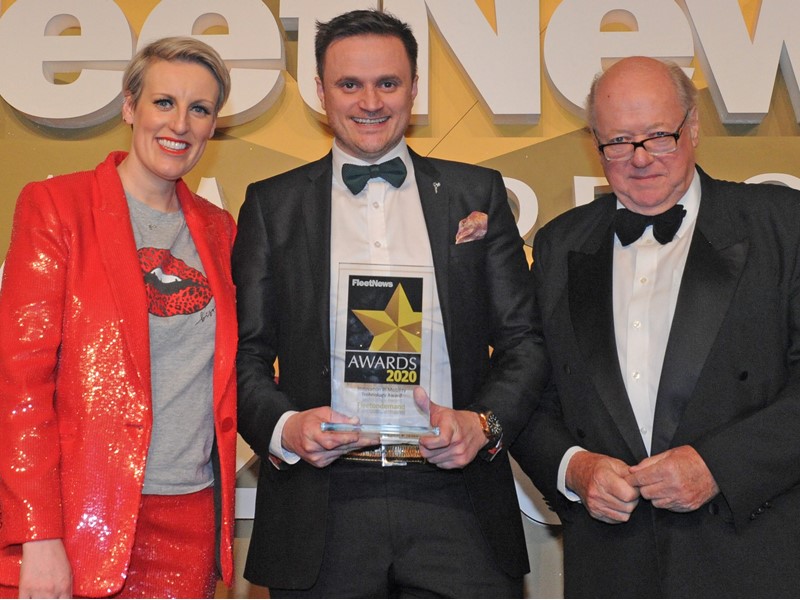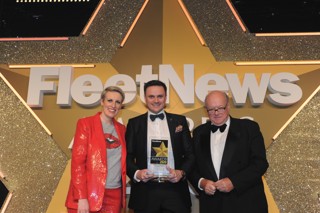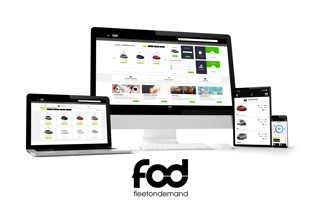As the worlds of corporate travel and fleet become increasingly inter-twined and the importance of the company car comes under pressure from new mobility solutions, the technology that keeps people moving becomes ever more important.
Fleetondemand (FOD) launched in 2008, aiming to provide fleets and businesses with a seamless solution that gets employees where they need to be cheaply, efficiently and, most importantly, with minimal fuss.
It is rapidly becoming one of the UK’s most advanced mobility technology providers, with its Mobilleo platform playing an increased role in addressing the global mobility needs of fleets and businesses.
Founded by chief executive Justin Whitston, the mastermind behind Nexus Vehicle Rental, FOD provides a one-touch multi-modal booking platform with central billing.
It connects business users to flights, trains, taxis, car hire, car leasing, car clubs, bikes and hotels, presenting them with all forms of available transport.
A SmartSearch functionality allows users to choose from a range of multi-modal journeys based on their individual preferences. These could, for example, be based on fastest route, most comfortable journey or the journey with the lowest CO2 emissions.
Users can also include the cost of driving their own vehicle or company car for all or part of the journey, compared with other modes of transport.
Last year, Fleetondemand acquired vehicle management company FleetEurope enabling it to almost double the number of rental vehicles available through Mobilleo. The two companies have now been integrated as part of the wider FOD Mobility Group, contributing to its expansion into the European market.
The first phase of its European growth strategy includes an initial presence in France, Belgium, Germany, Spain and Netherlands.
Fleet News: Why did you choose to focus on fleets?
Justin Whitston: In 2016 we looked at the way the world was changing in terms of transportation and the shift to usership instead of ownership. We thought the real exponential growth opportunity was to connect all forms of transportation into the platform.
My view was, in the changing world to Mobility as a Service (MaaS) a lot of city congestion and a lot of the challenges businesses face to move to MaaS, is because of the company car.
Congestion in cities is largely caused by employees commuting to work every morning. If you can offer a better solution to businesses first, you are going quite a long way to cleaning up the workforce commute and public transportation infrastructure and removing cars from the equation.
FN: Will the traditional company car be affected by a shift to MaaS?
JW: MaaS, as a focus, is not really a replacement for the car. It’s about taking a company’s mobility objectives and wrapping a solution around them.
What we have found fascinating as a trend is for our customers stepping into mobility can mean quite a lot of different things – it could be having rental and car club side-by-side, for example.
Businesses are going to be evaluating what percentage of time an employee can work from home and what percentage of time they need to be accessible for connectivity with customers and colleagues. What the best method of transport is to fulfil that, as more company cars come up for renewal, will be a really poignant question that fleet and mobility managers will have to address.
You also have to think about the younger workforce moving forward into management. We see a trend in younger people not taking their driving test so those people are bleeding into corporate businesses without driving licences, how do you move those people around?
FN: Are you happy with the level of coverage you can provide?
JW: In terms of the UK market we have the whole country covered for transportation. We have all rail, car rental and car clubs, plus we have domestic flight, ferry and demand-responsive transport.
The next thing coming is micro-mobility, such as scooter products – we are just seeing that now.
From a multi-modal perspective, you can get off a train in Birmingham and get a Brompton bike all via the platform.
We are very well accelerated in terms of content and, as we start to scale, that is bringing more content. We aggregate four taxi platforms, so you can book a taxi anywhere in Europe.
FN: What effect has the coronavirus pandemic had on the mobility sector?
JW: We have a big underlying car rental business and we have seen volumes steady in that sector. Lots of businesses see rental as a viable safe option. Public transport, in the longer term, will have to move to a more demand-responsive model. A bit like Uber, the bus companies and operators will need to become more responsive in pricing, routing and scheduling.
Businesses of all sizes are becoming quite positive about working from home. That means the population commuting to city centres will be slashed, which will have a big affect on public transport use. Public transport operators will need to look at snap-on services, like micro-mobility, in order to get those revenues back.
FN: What developments are you planning next?
JW: We will continue to evolve SmartSearch. The goal is for its solutions to mirror human thinking when planning a journey, taking into account all manner of things, such as weather, user preferences and disruptions. If there are events in that area, it might affect the journey, for example. Pricing is one element, but it needs to act like a human when developing the best route.
Booking, from a multi-modal perspective, is pretty difficult in one-click. We are there but there is work to do. To offer a car club you have to be a member, there has to be an onboarding exercise to welcome you in. We put all new clients through an onboarding exercise.
The more supply chain partners that come in then the more attractive it is to use us. Technical challenges can be resolved – it’s partnerships that are key.
 Matt Heald (centre), operations director, Fleetondemand picked up the award from Christopher Macgowan OBE, chairman of the judging panel, watched by event host Steph McGovern
Matt Heald (centre), operations director, Fleetondemand picked up the award from Christopher Macgowan OBE, chairman of the judging panel, watched by event host Steph McGovern
While Fleetondemand has established itself as a business targeting fleets and corporate travel, it has evolved into the consumer side of the market and is now powering a number of public sector MaaS platform projects.
The Highlands and Islands Transport Partnership (HITRANS) will use the Mobilleo platform to support its Go-Hi rural MaaS project from March 2021. It will be the first time that urban mobility solutions have been offered in a rural environment. The app will form part of a customised supply chain that provides residents and visitors in the Highlands and Islands with access to buses, trains, car hire, car clubs, bicycle hire, air travel and ferries.
Fleetondemand is also involved in the development of BP’s Mobility Hubs project, which integrates EV charging, bike share, car club and public transport in one urban site.
“We’re really excited to be involved in these new projects and to be powering a new way to travel,” said Whitston.






















Login to comment
Comments
No comments have been made yet.